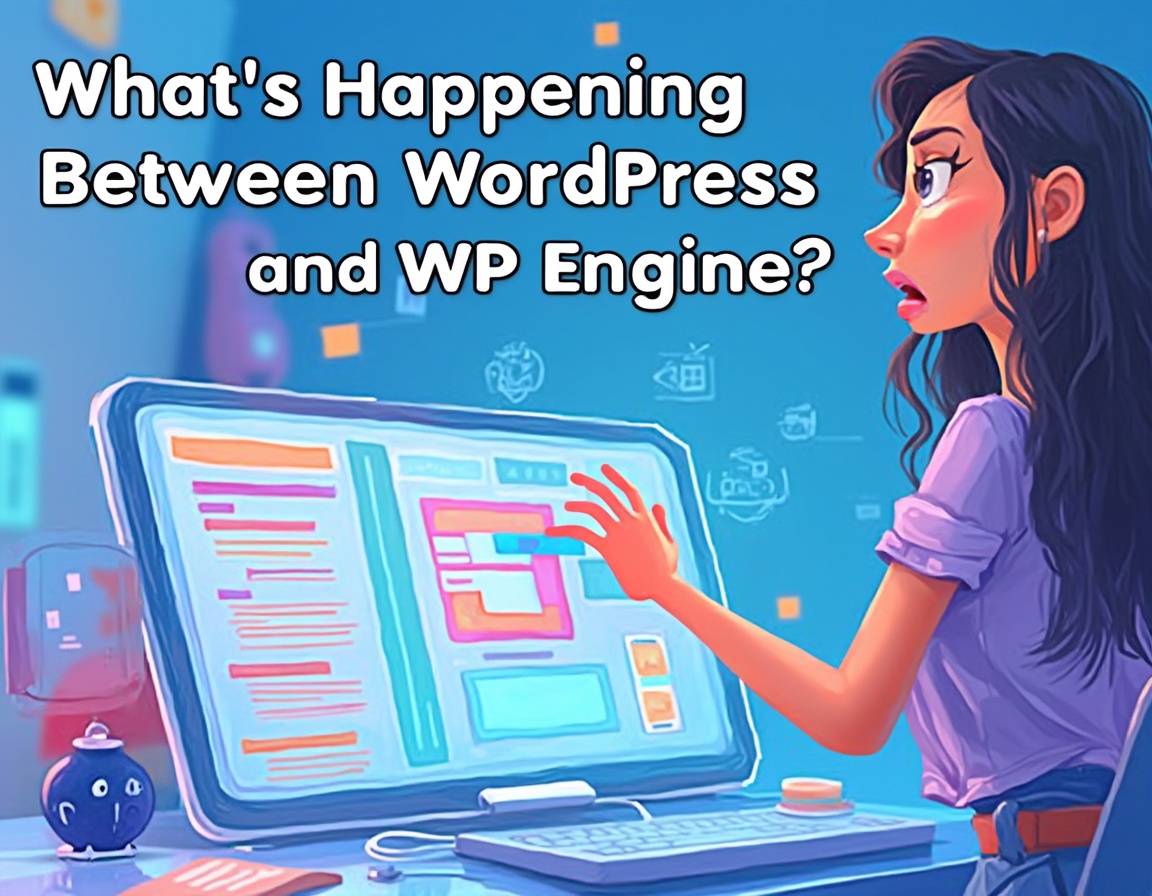
If you’ve been following WordPress news recently, you may have heard about the growing tension between Matt Mullenweg, the co-founder of WordPress, and WP Engine, one of the biggest WordPress hosting providers. This situation has quickly escalated into public accusations, legal threats, and actions that have caught the attention of WordPress users and the wider open-source community. Let’s dive into the details to get a clearer picture of what’s going on.
This conflict stems from concerns about WP Engine’s contributions—or lack thereof—to the WordPress ecosystem. Matt Mullenweg has publicly called out WP Engine, arguing that despite building a very profitable business on WordPress, they haven’t been giving back to the community as much as they should.
According to Mullenweg, WP Engine, which was acquired by the private equity firm Silver Lake in 2018, has been contributing far less than other companies of its size. For comparison, he mentioned WP Engine’s 40 hours per week of contributions versus Automattic’s 3,915 hours, even though both companies are of a similar scale.
At the heart of this disagreement is the “Five for the Future” initiative. This program encourages companies benefiting from WordPress to contribute at least 5% of their resources back to the project. Mullenweg has pointed out that, given WP Engine’s size and revenue (reportedly $400 million annually with over 1,000 employees), their contributions should be significantly higher.
On top of that, there’s also a branding issue. Mullenweg claims that WP Engine is causing confusion with their use of WordPress-related trademarks, like their name and color scheme, leading users to believe WP Engine is officially connected to WordPress.
Things really came to a head during WordCamp US 2024, where Mullenweg gave what he called his “spiciest” presentation ever. During this talk, he heavily criticized WP Engine, even going as far as calling them a “cancer to WordPress.” He also hinted that WP Engine might not be allowed to have booths at future WordCamps, escalating the situation further.
Following the WordCamp incident, both parties exchanged cease and desist letters. WP Engine accused Automattic of misconduct, alleging that Mullenweg had threatened them with a “scorched earth nuclear approach” if they didn’t comply with certain demands. On the flip side, Automattic sent a letter demanding that WP Engine stop using WordPress and WooCommerce trademarks without permission.
In addition to the branding issues, Mullenweg criticized WP Engine’s technical practices, particularly their decision to disable WordPress’s revision history feature by default, which he argued goes against WordPress’s core promise of protecting user content.
In a drastic move, WordPress.org banned WP Engine from accessing its resources, including update servers, plugin directories, and other key services. This action could potentially impact millions of websites hosted by WP Engine. However, shortly after, a temporary reprieve was announced, giving WP Engine time to set up their own versions of WordPress.org resources by October 1, 2024.
The WordPress community is divided. Some back Mullenweg, agreeing that WP Engine should be more transparent and contribute more. Others, however, feel that Mullenweg’s approach has been too harsh and could harm the ecosystem. In fact, a Twitter poll Mullenweg conducted about whether WP Engine should be allowed at future WordCamps resulted in the majority voting in favor of keeping WP Engine involved.
WP Engine has defended its contributions, highlighting a decade of involvement in the WordPress space. They’ve pointed to their sponsorship of WordCamps, organizing educational events, and developing tools like Faust.js and WPGraphQL as examples of how they’ve given back.
This situation isn’t just about WP Engine and Automattic; it raises bigger questions about the relationship between open-source projects and companies that profit from them. The conflict underscores the challenges of ensuring that businesses benefiting from open-source tools also contribute to their development.
For the WordPress community, the outcome of this conflict could shape the future of how companies interact with and support open-source projects, especially when large profits are involved.
As of October 2024, the dispute remains unresolved, with WP Engine filing a lawsuit against Automattic and Matt Mullenweg. The legal battle will likely drag on, but its outcome could have lasting effects on the WordPress ecosystem. The community is watching closely, hoping for a resolution that won’t negatively impact users or the platform as a whole.
In short, the conflict between WordPress and WP Engine is a reminder of the complexities that arise when community-driven projects intersect with commercial interests. Stay tuned as this story continues to unfold—there’s sure to be more drama ahead!
No results available
Reset